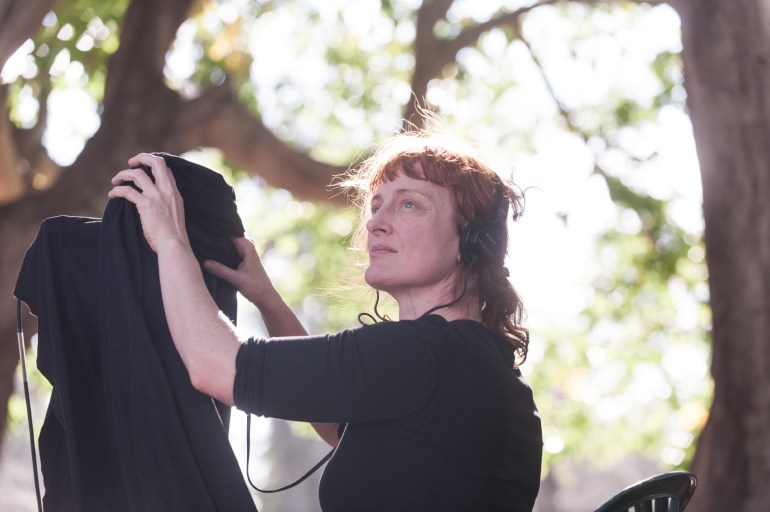Jennifer Kent on the set of ‘The Nightingale.’
The outcry over Jennifer Kent’s The Nightingale as the only female-directed film among the 21 in official competition at the Venice International Film Festival for the second consecutive year has not swayed the festival’s director.
In remarks likely to inflame criticism, Alberto Barbera asserted gender doesn’t matter, he ruled out quotas and insisted the only criteria will continue to be the quality of individual films.
Barbera acknowledged the under-representation of women is a major problem but he told Deadline: “The situation isn’t acceptable at all but it’s not up to the festival director to change that situation. The industry is a male industry and there is prejudice. Many producers and financiers don’t trust women, for example. They think they can’t control a set. That’s a mistake.
“It’s a problem of access. There are many more women in the industry today than in the past. But it’s true there’s only a small amount of women directors. We got around 2,000 submissions in total and only 23 per cent were from women directors.
“I think the only criteria is the strength of the film itself. As Guillermo [jury president Guillermo del Toro] said, the only thing that counts is what’s in the frame. The gender doesn’t matter. I won’t change my criteria, which is only based on the quality of the film. There’s not much I can do. Quotas won’t help. They can be offensive or humiliating.”
Barbera stressed the Venice film juries this year are evenly split between men and women and that 48 per cent of his cinema department’s staff are female. The competition jury includes Naomi Watts, Taiwanese-born actress, director, screenwriter and producer Sylvia Chang, Danish actress Trine Dyrholm and French actress and director Nicole Garcia.
Last Friday the Venice festival joined festivals in Cannes, Locarno and Sarajevo in signing a gender parity charter which has three objectives: transparency on film selection details; transparency about the structure of the selection committees and management; and an increase in the presence of women in each organisation’s structure.
Interviewed in Venice by Deadline, Kent said she would love to be thought of as just another filmmaker in competition. She added: “Of course I feel it’s important that we even the balance. We need to not just for storytelling. I think there needs to be a greater respect for the feminine voice across the planet. It’s a real issue and it’s something that affects all of us, not just women. If we can respect women it will help everyone else as well. For me it’s vital. It could not be more important.”
Produced by Kristina Ceyton of Causeway Films and Bruna Papandrea and Steve Hutensky of Made Up Stories, The Nightingale will have its world premiere in Venice on Wednesday followed by the Adelaide Film Festival in October.
Kent’s follow-up to The Babadook stars Aisling Franciosi, Sam Claflin, Baykali Ganambarr, Damon Herriman, Harry Greenwood, Ewen Leslie and Michael Sheasby.
Set in 1820s Tasmania, the plot follows Franciosi as Clare, a young Irish convict as she chases a British officer (Claflin) through the rugged Tasmanian wilderness, bent on revenge for a terrible act of violence he committed against her family.
On the way she enlists the services of an Aboriginal tracker named Billy (Ganambarr), who is also marked by trauma from his own violent past. Transmission Films has yet to set a release date.



